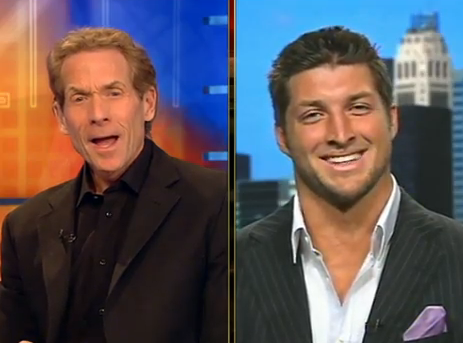
Nobody likes the media anymore. Sports media. Hard-news media. You name it. They're the bad guys, trying to sell stories in sensational and immoral fashion, rather than in the good old days when Walter Cronkite could just tell us "that's the way it is" and we'd all respond by saying, "You stay classy, Ron Burgundy." Or something like that.
But let's remember that the media is supposed to serve the people, and what the people want is what the people get. So when we are disgusted by the fact a study has found that the public is more likely to embrace a confident sports pundit than an accurate one, we should stop to consider that the sports media world we're watching is actually sort of a reflection of ourselves.
Wait, what? Confidence is more important than being correct? That can't be right, can it? I'm going to assume it is, because the researchers who brought it to my attention seemed pretty damn confident.
It is indeed the case, according to the research conducted by two economics doctoral candidates — Jadrian Wooten and Ben Smith — at Washington State University. From Science Daily:
Smith made a software program to sort through more than 1 billion tweets for predictions of the 2012 baseball playoffs and World Series and the 2013 Super Bowl. The program pulled out tweets with team names, nicknames and expressions commonly associated with predictions, like "beat." Where they might rate the confidence of a television pundit by how loudly he or she yelled, a scale of word strength pegged words like "vanquish," "destroy" and "annihilate" as expressions of confidence. Their hypothesis: Pundits have a false sense of confidence because that's what the public, seeking to avoid the stress of uncertainty, craves.
The study compared predictions made by "professionals" to those made by regular Joes, taking into account those terms in order to essentially determine how much hubris is in play. The results: Professionals were right 47 percent of the time, while amateurs were right 45 percent of the time. But the pros scored a .480 confidence rating, while the regulars were way below that at .313.
"I like to think of it like a roulette wheel," said Wooten. "If you have somebody just placing bets, that person is kind of boring. But if you have someone going, 'Oh, yeah! It's red!' and they are confident, that's the person that you are interested in."
And so next time you ask yourself why Stephen A. Smith and Skip Bayless are so popular, stop and consider the sad reality uncovered here.
We've been hearing and reading for decades that women seek confidence over almost anything else in men, and apparently that phenomenon also exists when we're picking our pundits. Strange, strange world we live in.






